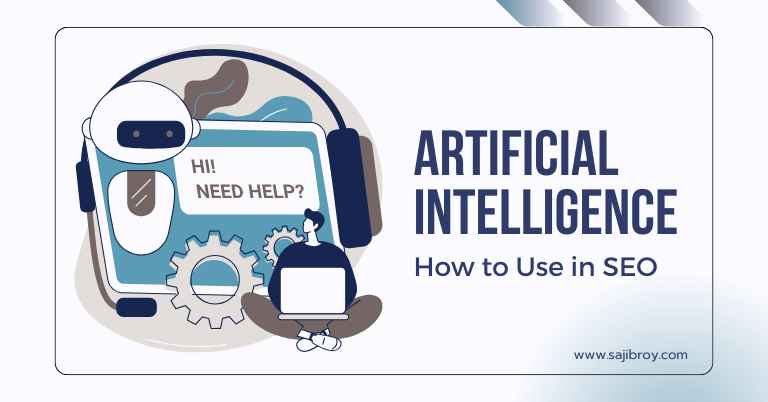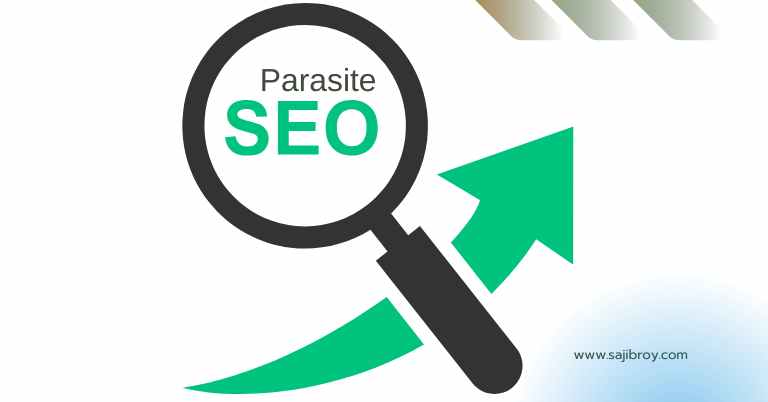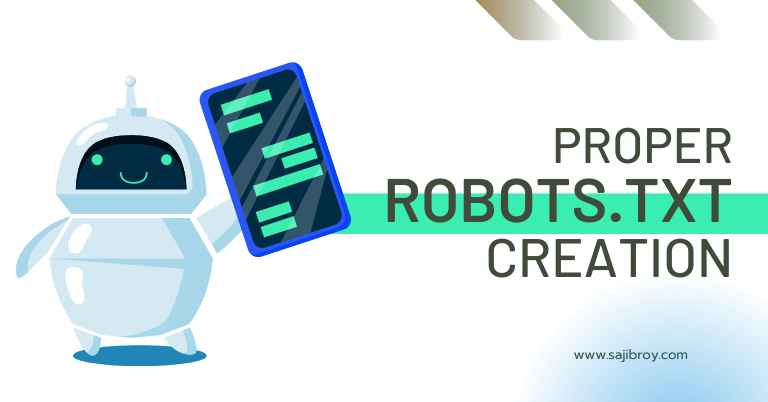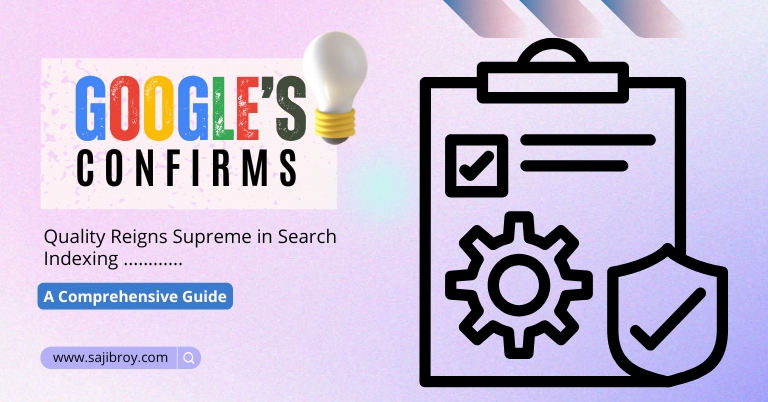Companies are leveraging artificial intelligence in marketing and advertising to streamline processes, enhance customer targeting, and optimize campaign performance. AI is being used to automate repetitive tasks, analyze large volumes of data, and generate insights that guide personalized messaging, audience segmentation, and creative strategy.
AI-powered chatbots also play a crucial role in delivering personalized customer experiences and driving engagement. Overall, the integration of AI into marketing and advertising is revolutionizing the way companies understand and connect with their target audience, resulting in more effective and efficient campaigns.
Let's See the Topic Overview
The Role Of Artificial Intelligence In Marketing And Advertising
Artificial Intelligence has revolutionized marketing and advertising strategies, enabling companies to enhance customer experiences and increase efficiency. From personalized messaging to data analysis, AI efficiently identifies trends and enables targeted campaigns, ultimately leading to improved ROI and customer satisfaction.
Artificial Intelligence (AI) has revolutionized various industries, and marketing and advertising are no exceptions. With its ability to analyze massive amounts of data, predict consumer behavior, and automate processes, AI has become an integral tool for companies looking to optimize their marketing strategies and enhance customer engagement.
In this blog post, we will explore the different ways companies are utilizing AI in marketing and advertising.
Enhancing Customer Engagement
- AI-powered chatbots: Companies are leveraging AI to create intelligent chatbots that can interact with customers, answer their queries, and provide personalized recommendations. These chatbots use natural language processing (NLP) algorithms to understand and respond to customer inquiries just like a human agent would.
- Personalized content recommendations: Using AI algorithms, companies can analyze customer data, including browsing history and purchase behavior, to deliver personalized content recommendations. By tailoring content to individual preferences, companies can significantly enhance customer engagement and drive conversions.
- Virtual assistants: Virtual assistants, such as Amazon’s Alexa or Google Assistant, utilize AI algorithms to provide personalized recommendations, offer assistance, and perform tasks based on user commands. They can even learn from user behavior and adapt their responses over time, delivering a more personalized and engaging experience.
- Voice search optimization: With the rise of voice-activated devices, optimizing marketing and advertising content for voice search has become crucial. AI-powered algorithms can help companies understand the nuances of voice search queries and tailor their content accordingly, ensuring higher visibility and better customer engagement.
Optimizing Advertising Campaigns
- Audience targeting and segmentation: AI enables companies to analyze vast amounts of data to identify target audiences and segment them based on various demographics, interests, and behaviors. This allows for more precise and effective ad targeting, maximizing the chances of reaching the right individuals with the right message.
- Automated ad creation and optimization: AI-powered tools can automate the ad creation process by generating ad copy, selecting visuals, and determining the optimal ad placement. Additionally, AI algorithms can continuously optimize ad performance by analyzing user engagement data and making real-time adjustments.
- Predictive analytics for campaign performance: By leveraging AI algorithms, companies can gain valuable insights into campaign performance. AI can predict key performance metrics such as click-through rates, and conversion rates, and even forecast the potential outcomes of different advertising strategies. This data-driven approach helps companies optimize their campaigns and achieve higher returns on investment.
Improving Data Analysis And Insights
- Data mining and pattern recognition: AI algorithms can comb through vast amounts of data in real time, identifying patterns, trends, and correlations that humans might miss. This allows marketers to gain deeper insights into customer behavior, preferences, and market dynamics, enabling them to make data-driven decisions.
- Predictive modeling and forecasting: AI can analyze historical data to build predictive models and forecast future trends. This helps companies anticipate customer needs, demand patterns, and market shifts, allowing them to proactively adjust their marketing and advertising strategies for better results.
- Sentiment analysis and social listening: AI-powered tools can analyze social media and online content to determine consumer sentiment towards a brand, product, or campaign. By monitoring conversations and sentiment trends, companies can make informed decisions and tailor their marketing efforts to resonate with their target audience.
Artificial intelligence plays a crucial role in revolutionizing marketing and advertising practices. By enhancing customer engagement, optimizing advertising campaigns, and improving data analysis and insights, companies can stay ahead of the competition, deliver personalized experiences, and drive better results. Incorporating AI into marketing strategies is no longer a choice but a necessity in today’s ever-evolving digital landscape.
Ai-Powered Personalization In Marketing And Advertising
Companies today are leveraging artificial intelligence to enhance personalization in their marketing and advertising efforts. By utilizing AI-powered technologies, businesses can analyze customer data, deliver tailored messaging, and optimize campaigns to maximize their impact and drive better results. This innovative approach streamlines the customer journey and improves overall engagement, making it a crucial tool for modern marketers.
Artificial Intelligence (AI) is revolutionizing the way companies approach marketing and advertising strategies. With its ability to analyze vast amounts of data, AI is helping businesses understand consumer behavior more effectively and personalize content recommendations. In this section, we will explore how AI-powered personalization is transforming marketing and advertising efforts.
Understanding Consumer Behavior
AI technology enables companies to gain deep insights into consumer behavior, helping them understand the preferences, needs, and motivations of their target audience. By utilizing AI algorithms, businesses can analyze customer data such as browsing history, purchase patterns, and social media interactions to uncover valuable trends and patterns.
This understanding allows marketers to make informed decisions about their campaigns and create targeted messaging that resonates with their customers.
Customized Content Recommendations
AI-driven personalization takes marketing and advertising a step further by providing customized content recommendations to individual consumers. By leveraging machine learning algorithms, businesses can create personalized experiences tailored to each customer’s specific interests and preferences. This not only enhances the overall customer experience but also increases the chances of conversions and customer loyalty.
Here are some ways in which AI enables customized content recommendations:
- Collaborative filtering: AI algorithms analyze user data to identify patterns and similarities among consumers, allowing businesses to recommend products or services based on what similar users have shown interest in or purchased.
- Natural language processing: AI-powered chatbots and virtual assistants use natural language processing to engage with customers, understand their queries, and provide personalized recommendations or solutions.
- Real-time personalization: By leveraging AI, marketers can deliver real-time, contextually relevant content to customers, ensuring that they receive the most up-to-date information and offers.
Predictive Customer Segmentation
AI plays a crucial role in effectively segmenting customers based on their predicted behaviors and preferences. By analyzing historical data and patterns, AI algorithms can predict customer segments with similar characteristics, enabling marketers to tailor their messaging and targeting strategies accordingly.
Here’s how predictive customer segmentation powered by AI benefits marketing and advertising efforts:
- Improved targeting: AI algorithms help businesses identify the most suitable customer segments for their products or services, allowing them to create highly targeted campaigns that yield better results.
- Dynamic segmentation: Unlike traditional segmentation methods that rely on static attributes, AI-powered predictive segmentation adapts to changing consumer behaviors and preferences, ensuring that marketing efforts remain relevant and effective.
- Enhanced personalization: Predictive customer segmentation enables marketers to deliver personalized content and offers to specific customer segments, increasing engagement and conversions.
As companies continue to leverage AI in marketing and advertising, the possibilities for personalized customer experiences and targeted campaigns will only expand. The insights gained through AI-powered personalization enable businesses to optimize their strategies and drive better results, ultimately leading to improved customer satisfaction and overall business growth.
Automation In Marketing And Advertising With Ai
Discover how companies are leveraging artificial intelligence to automate their marketing and advertising efforts, streamlining processes and enhancing customer experiences. AI technology helps businesses make data-driven decisions, optimize campaigns, and personalize content, ultimately driving growth and boosting ROI.
Artificial intelligence (AI) has revolutionized the way companies approach marketing and advertising. From automated ad creation to streamlining customer service, AI-driven tools have become an indispensable part of the industry. In this section, we will explore three key aspects of automation in marketing and advertising with AI: automated ad creation and optimization, streamlining customer service, and the use of AI-driven marketing automation tools.
Automated Ad Creation And Optimization:
- AI-powered platforms can generate targeted ads by analyzing consumer data and behavior patterns.
- These platforms leverage machine learning algorithms to constantly optimize ads for maximum performance.
- AI algorithms can automatically generate ad variations based on user preferences and performance data.
- With AI-powered ad creation tools, businesses can save time and resources by automating the ad creation and optimization process.
Streamlining Customer Service:
- With AI chatbots, businesses can provide instant and personalized customer support 24/7.
- AI-powered chatbots can understand and respond to customer inquiries, improving response times and customer satisfaction.
- These chatbots can handle a wide range of customer issues, freeing up human agents to focus on more complex tasks.
- By automating customer service, companies can enhance efficiency, reduce costs, and deliver a seamless customer experience.
Ai-Driven Marketing Automation Tools:
- AI-powered marketing automation platforms enable businesses to automate repetitive tasks and streamline workflows.
- These tools can analyze customer data to segment audiences and deliver personalized marketing campaigns.
- AI algorithms can predict customer behavior, allowing businesses to optimize their marketing strategies.
- By automating marketing processes, companies can achieve better targeting, increase efficiency, and gain valuable insights.
Automation in marketing and advertising with AI has revolutionized the way companies reach and engage with their target audiences. From automated ad creation and optimization to streamlining customer service and using AI-driven marketing automation tools, businesses can leverage AI technology to maximize efficiency, improve customer experience, and drive success in the digital landscape.
Ai-Driven Customer Insights And Analytics
Discover how companies are leveraging artificial intelligence to gain valuable customer insights and improve their marketing and advertising efforts. With AI-driven analytics, businesses can extract actionable data, uncover trends, and personalize their strategies for maximum impact.
Artificial Intelligence (AI) is revolutionizing the marketing and advertising industry by providing companies with powerful tools to understand their customers better. With AI-driven customer insights and analytics, businesses can unlock valuable data and make informed decisions to drive their marketing strategies forward.
In this section, we will explore how companies are utilizing AI for real-time data analysis, sentiment analysis, and brand monitoring, as well as predictive analytics for sales and conversion optimization.
Real-Time Data Analysis:
- AI enables companies to collect and analyze vast amounts of data from various sources in real time.
- By leveraging machine learning algorithms, AI can process data quickly and efficiently, providing valuable insights for marketers.
- Real-time data analysis helps businesses identify trends, patterns, and customer behaviors, allowing them to make data-driven decisions promptly.
- With AI-powered tools, marketers can identify which marketing campaigns are performing well and make adjustments on-the-go to optimize their strategies.
- By analyzing real-time data, companies can also identify potential issues, such as customer complaints or negative sentiment, and take immediate action to address them.
Sentiment Analysis And Brand Monitoring:
- AI-powered sentiment analysis allows companies to gauge the sentiment behind social media posts, customer reviews, and other online content.
- By analyzing language and context, AI can detect whether the sentiment is positive, negative, or neutral towards a brand or product.
- This analysis helps companies understand how their customers perceive their brand and products, guiding them in improving their marketing messaging and campaigns.
- AI also enables brands to monitor mentions across social media platforms and online forums, providing real-time insights into customer conversations and sentiment.
- By monitoring brand mentions, companies can identify any issues or complaints quickly, allowing them to take proactive steps to address customer concerns.
Predictive Analytics For Sales And Conversion Optimization:
- AI-powered predictive analytics leverages historical data, machine learning algorithms, and statistical models to forecast future sales and optimize conversion rates.
- Companies can use AI to analyze past customer behaviors and preferences to predict future buying patterns and market trends.
- Predictive analytics helps businesses tailor their marketing efforts to target specific customer segments, improving conversion rates and overall marketing efficiency.
- AI algorithms can analyze customer data, such as browsing history and purchase behavior, to recommend personalized products and offers, increasing the likelihood of conversion.
- By leveraging predictive analytics, companies can optimize their marketing campaigns, allocate resources effectively, and effectively drive sales and revenue.
AI-driven customer insights and analytics have transformed the marketing and advertising landscape. By utilizing real-time data analysis, sentiment analysis, and brand monitoring, as well as predictive analytics, companies gain a deeper understanding of their customers and can make data-driven decisions to enhance their marketing strategies.
With AI as a powerful tool, businesses can unlock valuable insights, optimize campaigns, and ultimately drive growth and success in the ever-evolving digital landscape.
Ai-Based Chatbots And Virtual Assistants In Marketing And Advertising
Companies are utilizing artificial intelligence (AI) in marketing and advertising through the implementation of AI-based chatbots and virtual assistants. These tools provide personalized and efficient customer interactions, improve lead generation and conversion rates, and enhance overall brand engagement and customer satisfaction.
Artificial Intelligence (AI) has revolutionized various industries, including marketing and advertising. Companies are now leveraging AI technologies, such as chatbots and virtual assistants, to enhance their customer support, provide 24/7 availability, and deliver personalized product recommendations. In this section, we will delve deeper into the ways AI-based chatbots and virtual assistants are transforming marketing and advertising strategies.
Enhancing Customer Support And Experience
- AI-powered chatbots are redefining customer support by providing instant assistance and resolving queries efficiently.
- These chatbots are capable of understanding natural language and can engage with customers in real-time conversations.
- By analyzing customer inquiries and responses, AI chatbots can learn and improve their interactions, leading to enhanced customer satisfaction.
- Chatbots can handle a wide range of customer queries, including order tracking, product information, and technical support, freeing up human agents to focus on more complex tasks.
24/7 Availability And Instant Responses
- With AI-based chatbots and virtual assistants, companies can provide round-the-clock availability, offering instant responses to customer queries regardless of time zones or working hours.
- Customers no longer have to wait for business hours to get assistance, leading to improved customer experience and increased convenience.
- AI-powered chatbots can handle multiple conversations simultaneously, ensuring prompt and efficient responses even during peak periods.
- Instant replies from chatbots create a sense of responsiveness, building trust and loyalty among customers.
Personalized Product Recommendations
- AI-driven chatbots use advanced algorithms and machine learning to analyze customer data, purchase history, and browsing behavior.
- By understanding individual preferences and interests, chatbots can provide personalized product recommendations tailored to each customer’s needs.
- These personalized recommendations not only enhance the customer experience but also increase the chances of conversion and repeat purchases.
- AI chatbots can proactively suggest complementary products or offerings, cross-promote relevant items, and upsell, thereby driving revenue for businesses.
AI-based chatbots and virtual assistants have become invaluable tools for companies in the marketing and advertising landscape. By enhancing customer support, providing 24/7 availability, and delivering personalized product recommendations, these AI-powered solutions contribute to improved customer experience, increased customer satisfaction, and ultimately, the growth of businesses.
Embracing AI technologies in marketing and advertising can give companies a competitive edge in effectively engaging with their target audience.
Ethical Considerations In AI-enabled Marketing And Advertising
Artificial Intelligence is revolutionizing marketing and advertising strategies, guiding companies to make informed decisions and target the right audience effectively. With AI’s assistance, businesses can analyze consumer behavior, personalize marketing campaigns, and ensure ethical considerations to build trust and long-term customer relationships.
Artificial intelligence (AI) has revolutionized marketing and advertising by enabling companies to enhance their strategies and deliver personalized experiences to consumers. However, along with the immense opportunities that AI brings, there are ethical considerations that need to be addressed. This section will explore the ethical implications of AI-enabled marketing and advertising, focusing on transparency and consumer trust, privacy concerns and data security, and ensuring fairness and equality in AI algorithms.
Transparency And Consumer Trust:
- Companies must prioritize transparency when using AI in marketing and advertising to build and maintain consumer trust.
- Being transparent involves clearly informing consumers when AI is implemented in various marketing activities.
- Disclosure can be done through clear labels, notifications, or policy statements that explain the use of AI in data collection, profiling, and targeting.
- Providing transparent information about data usage and how it impacts personalization can foster trust and ensure that consumers are aware of how their information is being used.
- Educating consumers about the benefits of AI-enabled marketing, such as personalized recommendations, improved customer experiences, and relevant content, can help mitigate concerns and build trust.
Privacy Concerns And Data Security:
- AI requires the collection and analysis of vast amounts of user data, raising concerns about privacy and data security.
- Companies must prioritize data protection measures to safeguard consumer information from unauthorized access or misuse.
- Implementing strong encryption protocols, secure storage systems, and up-to-date security measures can help protect sensitive data.
- Companies should also comply with privacy regulations and obtain clear consent from users before collecting and using their data.
- Offering opt-out options and allowing users to have control over their data can enhance privacy and address concerns.
Ensuring Fairness And Equality In AI Algorithms:
- AI algorithms can inadvertently perpetuate biases and inequalities, which can negatively impact marketing and advertising campaigns.
- Companies should strive to create AI algorithms that are fair, unbiased, and non-discriminatory.
- Regularly auditing and monitoring AI algorithms for potential biases, particularly related to race, ethnicity, gender, and other protected characteristics, is crucial.
- Diverse and representative datasets should be used to train AI models, ensuring accuracy and fairness in their results.
- Companies should also be mindful of ethical considerations when using AI to target specific demographics or segments, avoiding discriminatory practices.
While AI brings numerous benefits to marketing and advertising, ethical considerations should not be overlooked. Transparency, privacy, and fairness must be prioritized to build consumer trust and ensure the responsible use of AI in marketing and advertising practices. By addressing these ethical concerns, companies can leverage AI’s potential while maintaining a strong ethical foundation for their strategies.
Challenges And Limitations Of AI in Marketing And Advertising
AI has revolutionized the marketing and advertising industry, providing companies with powerful tools for data analysis, personalization, and customer targeting. However, there are challenges and limitations to consider, such as the ethical implications of AI-driven decision-making, potential bias in algorithms, and the need for human expertise in interpreting and creatively leveraging AI-generated insights.
Artificial Intelligence (AI) has revolutionized the marketing and advertising landscape, enabling companies to optimize their strategies and drive better results. However, implementing AI in these domains comes with its fair share of challenges and limitations. In this section, we will explore some of the key hurdles that companies face when using AI in marketing and advertising.
Data Quality And Integration:
- Incomplete or inaccurate data: AI heavily relies on data to generate insights and make informed decisions. However, if the data used is incomplete or contains inaccuracies, it can hinder the effectiveness of AI algorithms.
- Difficulty in integrating multiple data sources: Many companies have data spread across various platforms and sources, making it challenging to integrate them into a centralized system. This can lead to inconsistencies and gaps in the data that AI systems rely upon.
High Initial Investment And Implementation Costs:
- Infrastructure costs: Implementing AI in marketing and advertising requires investing in robust hardware, software, and network infrastructure. This initial investment can be significant, especially for small and medium-sized businesses.
- Expertise and resources: Building and maintaining an AI-driven marketing ecosystem demands specialized skills and resources. Companies need to invest in training their teams or hiring AI experts, which can add to the overall implementation costs.
Skills Gap And Talent Acquisition:
- Shortage of AI experts: The demand for skilled AI professionals surpasses the current supply, creating a skills gap in the job market. As a result, companies often struggle to find and recruit professionals with the necessary AI expertise.
- Competition for specialized talent: With the scarcity of AI professionals, the competition to attract and retain top talent is fierce. This intensifies the recruitment process and can further increase costs for companies.
Implementing AI in marketing and advertising holds tremendous potential, but overcoming the challenges and limitations is crucial for its success. By addressing data quality and integration issues, carefully considering initial investment costs, and strategically managing talent acquisition, companies can unlock the true power of AI and achieve exceptional results in their marketing and advertising efforts.
Adopting AI in Marketing And Advertising: Best Practices And Case Studies
Discover how companies are leveraging artificial intelligence (AI) to revolutionize their marketing and advertising strategies. Through best practices and compelling case studies, this comprehensive guide explores the innovative ways AI is being used, helping businesses achieve better targeting, personalized campaigns, and improved customer experiences.
Artificial intelligence (AI) is revolutionizing the marketing and advertising industry, allowing companies to automate processes, personalize customer experiences, and enhance campaign effectiveness. With the ever-increasing use of AI in various sectors, it comes as no surprise that businesses are also leveraging this technology for their marketing and advertising efforts.
In this blog post, we will explore the best practices and case studies of how companies are adopting AI in marketing and advertising.
Developing An AI Strategy
- Define clear objectives: Identify the specific marketing and advertising goals you aim to achieve through AI implementation.
- Determine data requirements: Understand the data needed to train AI algorithms effectively and drive informed decision-making.
- Assess feasibility: Evaluate the technological readiness and availability of resources to implement AI solutions.
- Consider ethics and privacy: Ensure compliance with data protection regulations and maintain ethical standards when handling customer data.
- Collaborate across teams: Foster cross-functional collaboration to align marketing, advertising, and IT teams for seamless AI integration.
Implementing AI solutions Step-By-Step
- Data collection and analysis:
- Gather and consolidate relevant data from various sources to feed AI algorithms.
- Implement data analytics tools to generate actionable insights.
- Leverage AI-powered data analytics platforms for real-time monitoring and predictive analytics.
- Personalization and customer segmentation:
- Utilize AI algorithms to segment customers based on their preferences, behavior, and demographic information.
- Create personalized marketing messages and campaigns tailored to individual customer segments.
- Implement recommendation systems to suggest products or services based on customer behavior and preferences.
- Chatbots and virtual assistants:
- Develop AI-powered chatbots and virtual assistants to provide instant customer support and assistance.
- Implement natural language processing (NLP) techniques to enable human-like interactions.
- Automate routine inquiries and tasks, freeing up human resources for more complex issues.
- Predictive analytics and forecasting:
- Use AI algorithms to analyze historical data and predict future trends and customer behavior patterns.
- Optimize marketing and advertising strategies based on predictive insights.
- Improve campaign performance by identifying the most effective channels and timing for specific target audiences.
Success Stories Of AI Integration In Marketing And Advertising
- Netflix:
- Leverages AI algorithms to provide personalized recommendations based on user’s viewing history and preferences.
- Uses predictive analytics to determine the success potential of original content, leading to data-driven decision-making.
- Amazon:
- Utilizes AI algorithms to personalize product recommendations based on user browsing and purchase history.
- Implements AI-powered chatbots for customer support, offering quick and efficient assistance.
- Starbucks:
- Implements AI-powered mobile apps to offer personalized rewards, recommendations, and promotions based on customer preferences and past purchases.
- Uses AI algorithms for demand forecasting, ensuring optimal inventory management and minimizing waste.
- Coca-Cola:
- Leverages AI to analyze customer conversations on social media and identify emerging trends and sentiments.
- Tailors marketing campaigns to capitalize on consumer preferences and stay ahead of the competition.
Through strategic AI adoption and implementation, companies are reaping the benefits of enhanced customer experiences, improved campaign efficiencies, and data-driven decision-making in the marketing and advertising realm. As technology continues to evolve, we can expect AI to play an increasingly vital role in shaping the future of marketing and advertising strategies.
Conclusion
As we have seen throughout this blog post, the utilization of artificial intelligence in the field of marketing and advertising holds tremendous potential for companies aiming to stay ahead of the competition. Whether it’s optimizing ad targeting, personalizing user experiences, or improving customer service, AI has emerged as a powerful tool for enhancing various marketing strategies.
Moreover, it enables companies to make data-driven decisions, automate repetitive tasks, and gain valuable insights into consumer behavior. From advanced chatbots to predictive analytics, AI is revolutionizing the way companies engage with their audience, leading to increased efficiency and better ROI.
As we continue to embrace the possibilities of AI, it is undeniable that the marketing and advertising landscape will continue to evolve, enabling businesses to reach new heights of success. So, if you want to take your marketing game to the next level, exploring the potential of AI is no longer an option, but a necessity for any forward-thinking company.



![6-Month Local SEO Plan [Download Your Complete Proposal Template]](https://www.sajibroy.com/wp-content/uploads/2025/01/6-Month-Local-SEO-Plan-Download-Your-Complete-Proposal-Template.jpg)








